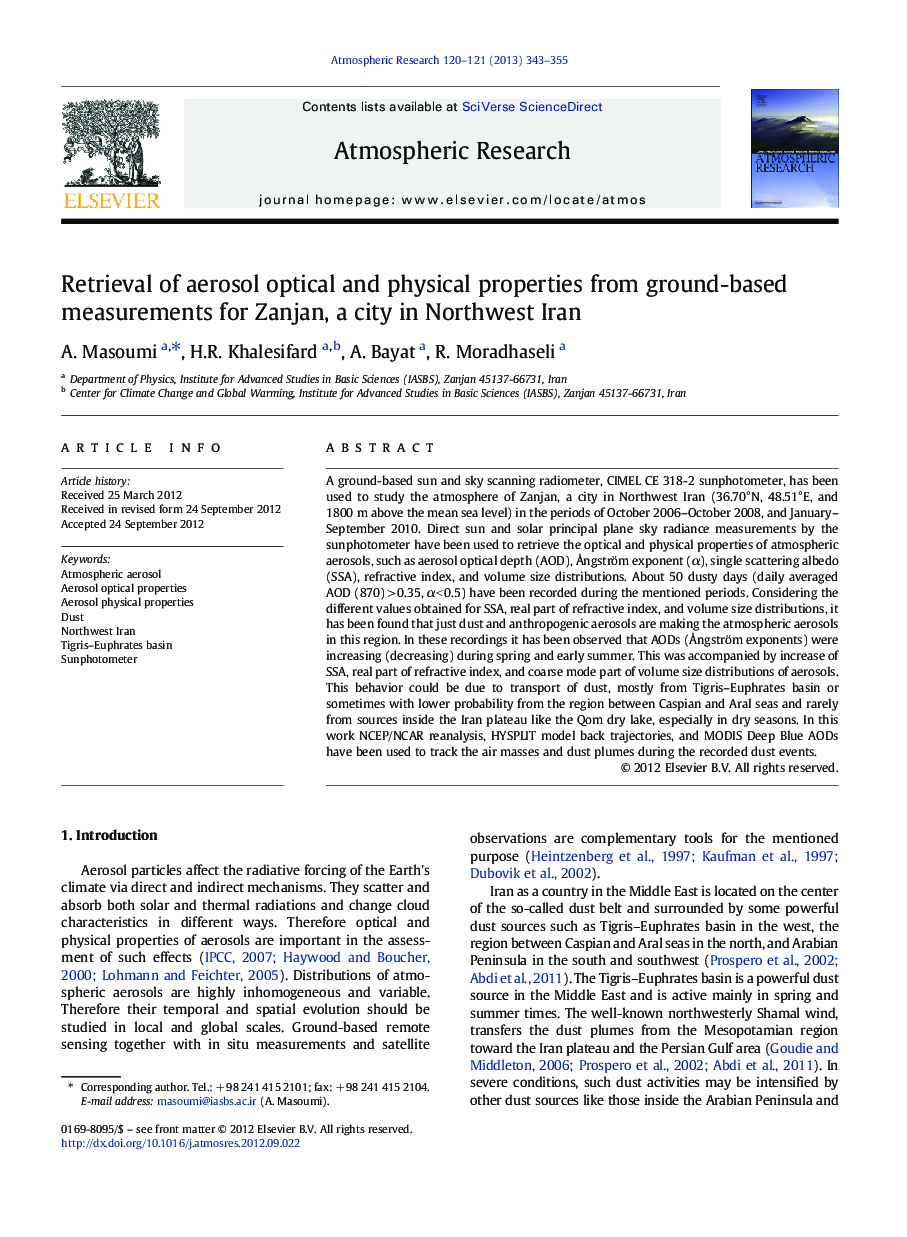| کد مقاله | کد نشریه | سال انتشار | مقاله انگلیسی | نسخه تمام متن |
|---|---|---|---|---|
| 4450147 | 1620545 | 2013 | 13 صفحه PDF | دانلود رایگان |

A ground-based sun and sky scanning radiometer, CIMEL CE 318-2 sunphotometer, has been used to study the atmosphere of Zanjan, a city in Northwest Iran (36.70°N, 48.51°E, and 1800 m above the mean sea level) in the periods of October 2006–October 2008, and January–September 2010. Direct sun and solar principal plane sky radiance measurements by the sunphotometer have been used to retrieve the optical and physical properties of atmospheric aerosols, such as aerosol optical depth (AOD), Ångström exponent (α), single scattering albedo (SSA), refractive index, and volume size distributions. About 50 dusty days (daily averaged AOD (870) > 0.35, α < 0.5) have been recorded during the mentioned periods. Considering the different values obtained for SSA, real part of refractive index, and volume size distributions, it has been found that just dust and anthropogenic aerosols are making the atmospheric aerosols in this region. In these recordings it has been observed that AODs (Ångström exponents) were increasing (decreasing) during spring and early summer. This was accompanied by increase of SSA, real part of refractive index, and coarse mode part of volume size distributions of aerosols. This behavior could be due to transport of dust, mostly from Tigris–Euphrates basin or sometimes with lower probability from the region between Caspian and Aral seas and rarely from sources inside the Iran plateau like the Qom dry lake, especially in dry seasons. In this work NCEP/NCAR reanalysis, HYSPLIT model back trajectories, and MODIS Deep Blue AODs have been used to track the air masses and dust plumes during the recorded dust events.
► Aerosol properties of Zanjan, a city in Northwest Iran are studied by sunphotometer.
► The AOD is increased during spring to early summer.
► Desert dust is a dominant type of aerosols in the atmosphere of Zanjan.
► Tigris–Euphrates basin is a main source of dust aerosols in Zanjan.
► More than 80% of dusty days are recorded between April and July.
Journal: Atmospheric Research - Volumes 120–121, February 2013, Pages 343–355